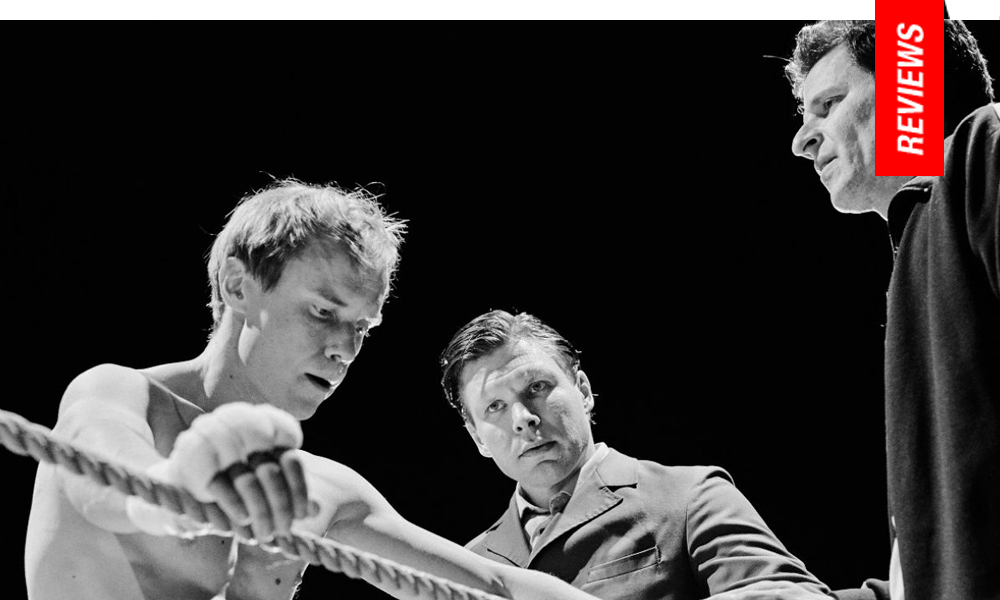On a Black and White Day You Can See Forever: Kuosmanen Pleasantly Upends Expectations with Debut
In 1962, amateur Finnish boxer Olli Maki (Jarkko Lahti), known as The Baker of Kokkola, leaves behind an impressive reputation as an amateur to pursue the World Featherweight title (a weight class he has to struggle to maintain). Managed by his close friend, Elis Ask (Eero Milonoff), a man who misses the glory days of his prime, the duo seems poised to get Finland a great degree of publicity. However, their best laid plans don’t account for Raija (Oona Airola), a young woman who strikes up an unexpected rapport and quickly intensifying romance with the boxer.
As its upbeat title suggests, The Happiest Day in the Life of Olli Maki proves itself to be a film concerned with the pleasures of the unexpected, and its most effervescent moments take place in unpredictable moments of spontaneity between Olli and Raija. Kuosmanen’s tightly controlled mise-en-scene results in a superb droll undertone, such as a press conference where a meaningful glance results in Maki’s vocalization of having fallen in love. Obviously, this is not cause for celebration for his manager Ask, a man we learn has poured more than just his reputation into building the career of Olli Maki.
When Ask is obviously relieved by Raija’s departure as Maki trains in Helsinki, Kuosmanen allows for an intriguing tonal tailspin, and her absence allows the film’s palette a sudden starker contrast. This is reflected significantly in a sequence where Maki returns to a fairground where previously he’d spent a magical evening with Raija and Ask, observing the same carnivalesque water dunking contest he’d so boisterously taken part of before. Solemnly, he observes the woman in the tank disrobe in back, a sobering spectacle behind the curtain.
Touching on the grueling struggle of the profession, namely to stay under the requisite weight for his class, as well as the endless publicity involved in maintaining heightened anticipation, The Happiest Day in the Life of Olli Maki succeeds as a unique endeavor because Kuosmanen elides formula. Instead, it’s a film which knows the real interest has to be character development in order to break through expectation, much of which takes place between the lines. While Airola and Lahti are the obvious focal points, Kuosmanen manages a significant shade of melancholy for Milonoff’s Ask, a man, once a European champion himself, who has poured more into his relationship with Maki than his wife and children (an amusing sequence where Olli and Raija are put up in bunk bed at Ask’s house is a case in point).
Those hoping for the usual fanfare, including the overly cribbed montage training sequence and the grand face-off we’re led up to, may be sorely disappointed. But those who realize the worth in the journey and not the mirage of the destination should certainly appreciate the rarity of how Kuosmanen goes against the grain.
★★★½/☆☆☆☆☆
